May
Lazy days
BOOKS › TV › RADIO › FILM › LETTERS › PUZZLES
A TALE OF FAITH AND HOPE
An unremarkable man achieves the remarkable in this moving film adaptation
FILM
THE UNLIKELY PILGRIMAGE OF HAROLD FRY
DIRECTOR: HETTIE MACDONALD
RELEASED NATIONWIDE ON 28 APRIL
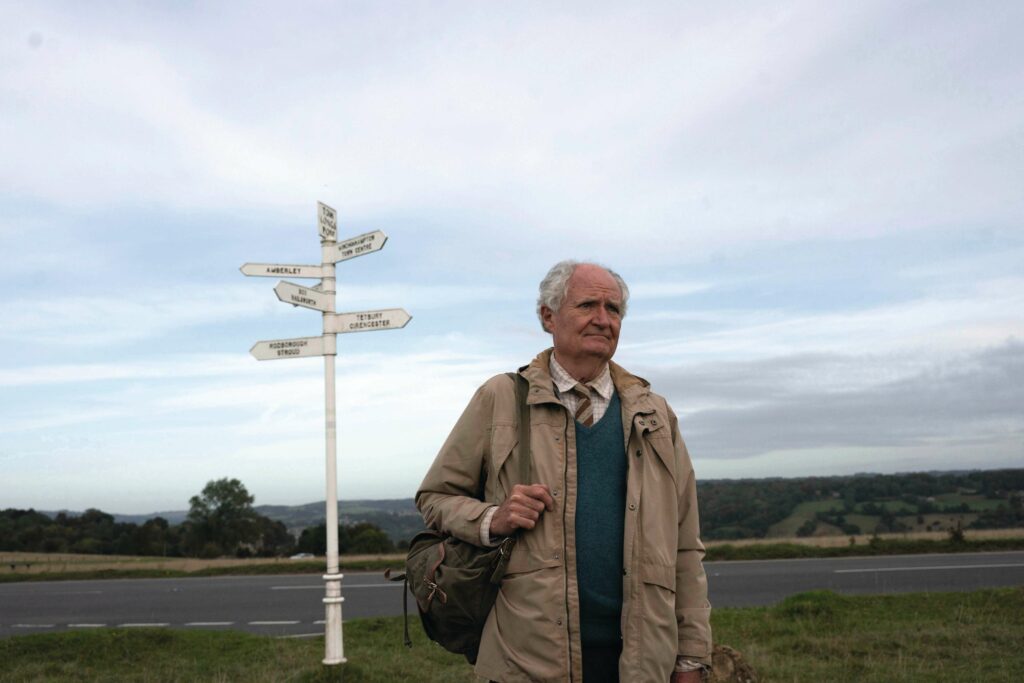
A runaway success when published, Rachel Joyce’s beautiful novel tells the tale of pensioner Harold Fry, who sets out on a 600-mile walk from Kingsbridge to Berwick-upon-Tweed. Harold’s chance meeting with a girl in a garage leads him to believe that, through the power of faith, he can save his old friend Queenie Hennessey from terminal cancer.
Joyce has adapted her book for screen and pared back some of Harold’s story, such as his lonely childhood. Instead, Jim Broadbent’s superbly contained yet expressive performance conveys Harold’s personal turmoil, while brief flashbacks show Harold and his wife Maureen with their troubled son David.
Bewitching cinematography captures wild landscapes and urban settings as Harold tramps north along A-roads and single-track lanes from South Devon to Northumberland. The land seems alive to his pain and progress, and is as much a character as any of the fascinating individuals Harold encounters on his travels. As Harold walks, the wild holds him, nurtures him, challenges him and hurts him, while memories both tender and traumatic swim to the surface.
Penelope Wilton is excellent as Maureen, who finds herself alone and lost while Harold undertakes his unlikely pilgrimage. The soundtrack supports the emotional journey of the film and features a moving folk song by Sam Lee, who also makes a campfire cameo.
Directed by Hettie MacDonald, this is a finely told and deeply poignant film.
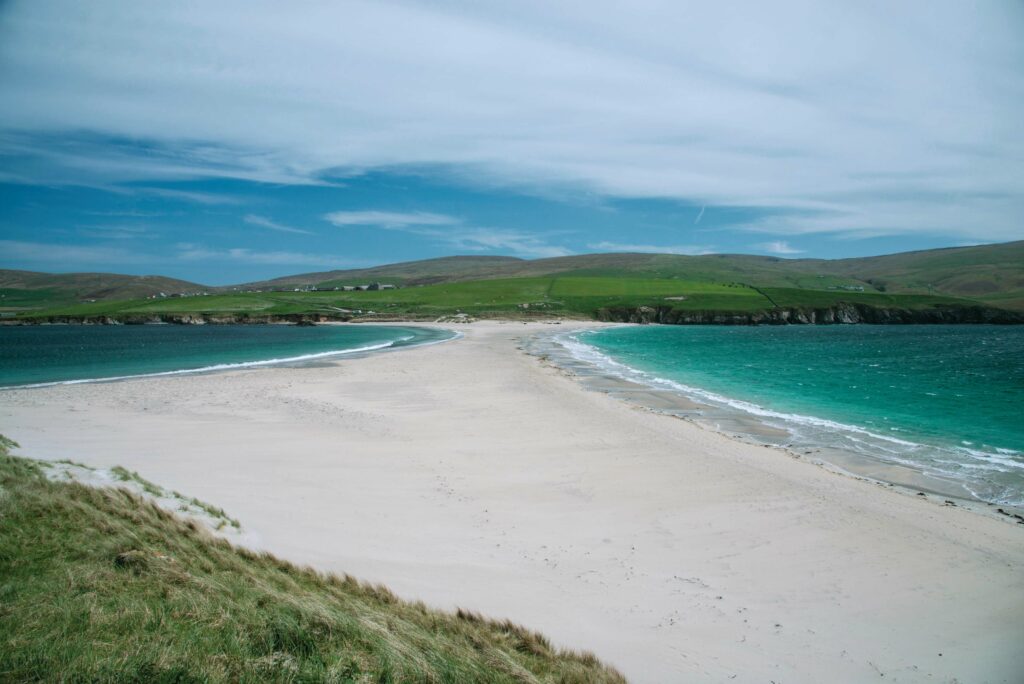
BOOK
SEA BEAN
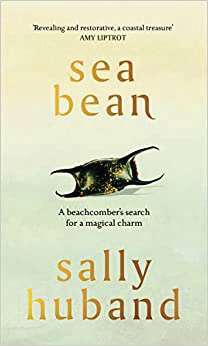
Sea beans are the seeds of tropical vines that drift from the Americas, sometimes for decades, before miraculously reaching our shores. Fishing folk once treasured them as tiny talismans.
Newly settled in Shetland with her young family, Sally Huband begins searching for one of her own. Her allconsuming quest lies at the heart of this gently paced yet gutsy, often achingly beautiful memoir, in which the ocean and its gifts are never far away.
Unmoored by motherhood, Huband is struggling to find her place in the remote island community, and her painful joints are made worse by the relentless wind. But she discovers a new identity as a beachcomber.
“Instead of fearing storms, I began to watch for them,” she says.
Beachcombing turns out to be a balm for body and mind, a restorative ritual that takes Huband around the Shetland archipelago and to Orkney, Fair Isle, the Faroes and Netherlands. She meets fellow beach-scourers, surveys the rich marine wildlife and falls in love with ‘sea post’, the ancient custom of casting messages adrift in bottles.
Sea Bean has much to say about Shetland culture and the tough, tragic history of its people, especially the women. It is mournful, introspective yet full of hope – a brilliantly salty blast of fresh air.
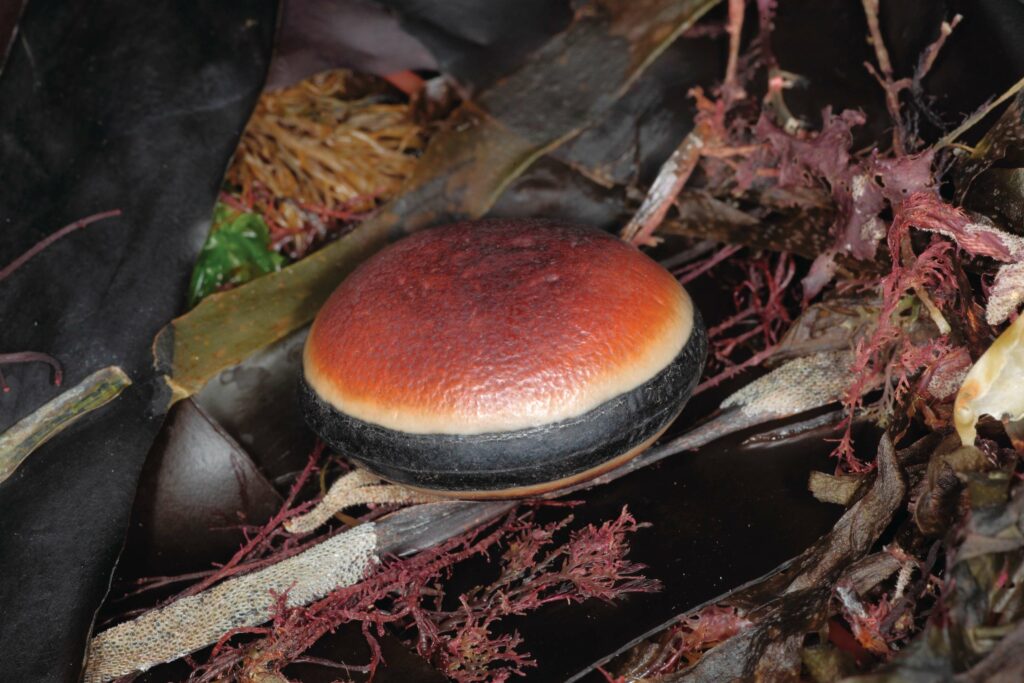
BOOK
ONE THOUSAND SHADES OF GREEN: A YEAR IN SEARCH OF BRITAIN’S WILD PLANTS
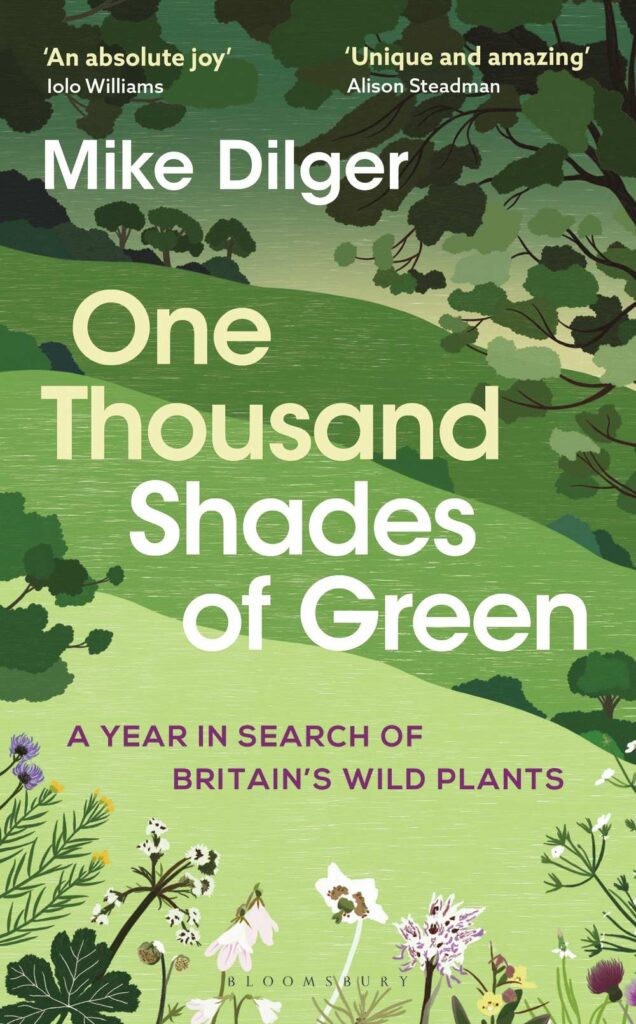
When Covid shook the world, presenter and author Mike Dilger (One Show and Gadget Show) was forced to take a slower pace of life.
After years of chasing the moving targets of the UK’s bird and wildlife population, he set his camera sights on something far less mobile, namely Britain’s flora. Across the course of a turbulent year, strewn with lockdowns and travel restrictions, he sought to find and document 1,000 different species of UK plant.
Reminiscent of a Victorian plant hunter (a comparison he also sees himself), often with family in tow, the book sees him risking injury, prosecution and even the threat of violence to document such botanic marvels as Alpine milk vetch, Teesdale sandwort and the spotted rockrose.
Bordering on the obsessional, the quest takes over nearly all of his spare time as he tries to balance his work commitments. This sees him traveling all over the UK, from the limestone Mendips of Somerset and chalky downs of Wiltshire to the acidic Caledonian forests of Scotland. It creates a travelogue element to the book which merges with part diary/part field guide.
With a down-to-earth style, Dilger’s self-deprecating sense of humour and more than a healthy dose of enthusiasm, it’s an immediately accessible book, one I can see being enjoyed by a wide range of people from botanists and plant enthusiasts to armchair explorers.
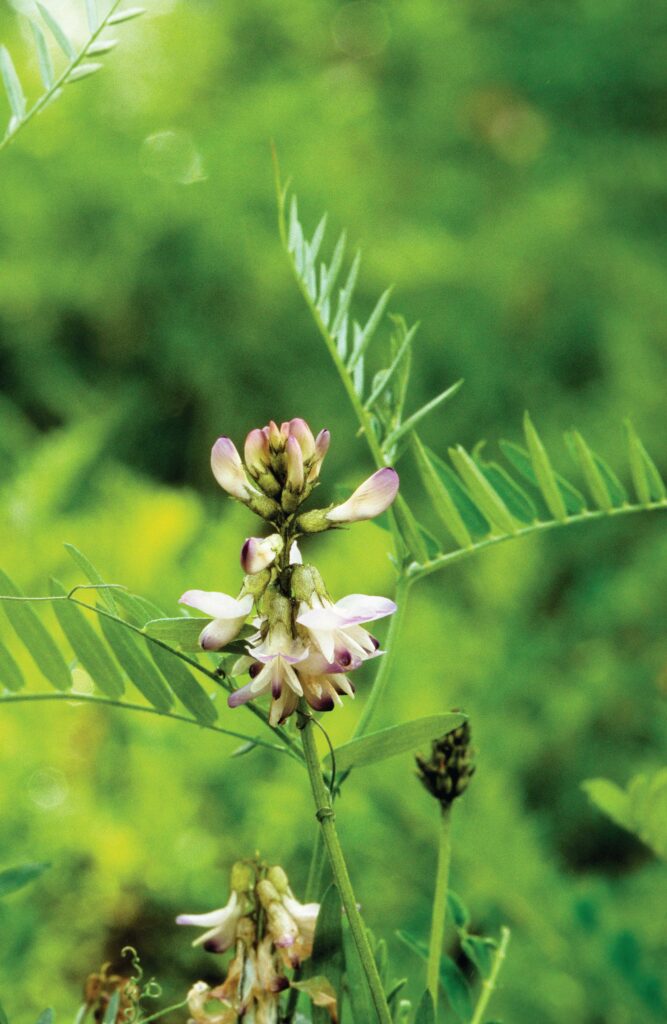
FILM
RIGHT OF WAY
VARIOUS DIRECTORS, TOURING THE UK
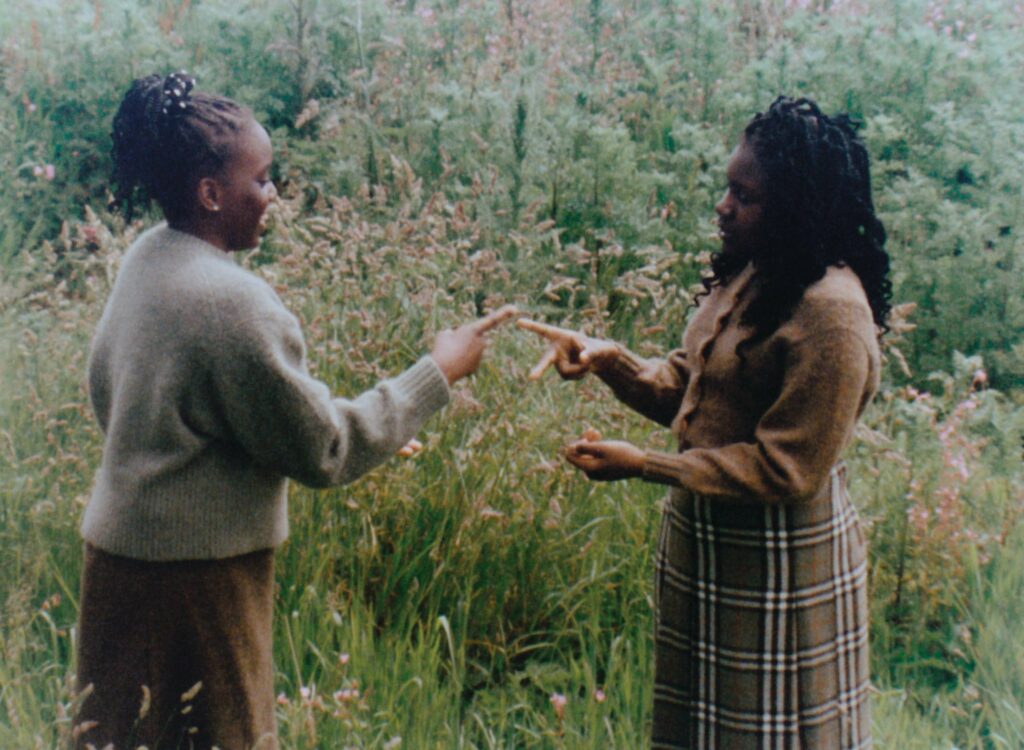
Fascinating new commissions sit beside archival shorts in this feature-length film that offers new insights into the ever-present issues of access and inclusion in the British countryside. Commissioned by the Independent Cinema Office and LUX arts agency, Right of Way explores the history of the national trails, which were created with a vision to “connect people to the rural landscape”. Included are three new films that challenge the perception of the countryside as an unchanging place – all are united by a search for kinship and community in the outdoors.
The 2022 film black stranger by artist and film-maker Dan Guthrie follows his search for an 18th-century namesake, ‘Daniel’, who was buried in a village near Dan’s home town of Stroud on 31 December 1719. Daniel was described on records in Gloucestershire Archives as being, simply, “a black stranger”. Other new commissions are Pastoral Malaise by Ufuoma Essi, inspired by Una Marson’s poem Spring In England, and Syncopated Green by Arjuna Neuman which reflects on the history of raves (free outdoor parties) in the countryside.
For touring dates, see rightofwaytour.org.uk
BOOK
GROUNDED: A JOURNEY INTO THE LANDSCAPES OF OUR ANCESTORS
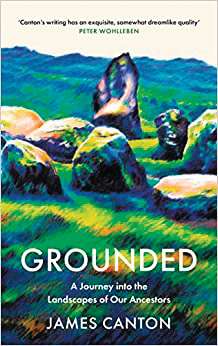
James Canton is curious. What makes a place sacred? He visits sites near his home in South England, such as the chapel at Little Gidding and the long barrow at West Kennet. Canton wants to “step into the minds” of the people who created or venerated constructions, groves, stones and icons. His journey is geographical, spiritual and one of historical and prehistorical discovery.
This book sits comfortably with others produced in lockdown that encourage us to re-engage with our immediate natural environment. Familiar, too, is how Canton, like Robert Macfarlane and others, engages friends and experts, fostering credibility but also a sense of gentle companionship.
Ideas come to him while swigging coffee, driving or watching his daughters perform tasks, his home environment providing narrative and context.
“The Bronze Age people who lived on these lands 5,000 years ago kept the memory of their loved ones alive with physical body parts. I thought of my granddad’s ashes kept in the urn and of his spoon, which I still had in my kitchen.”
Despite recognising that we simply cannot be sure what people who lived millennia ago thought, through his study and patient reimaginings, Canton does a good job of demonstrating that we are not so different from them. With that, we understand that what we can learn from them (particularly from those who lived in the Mesolithic Age) is relevant.
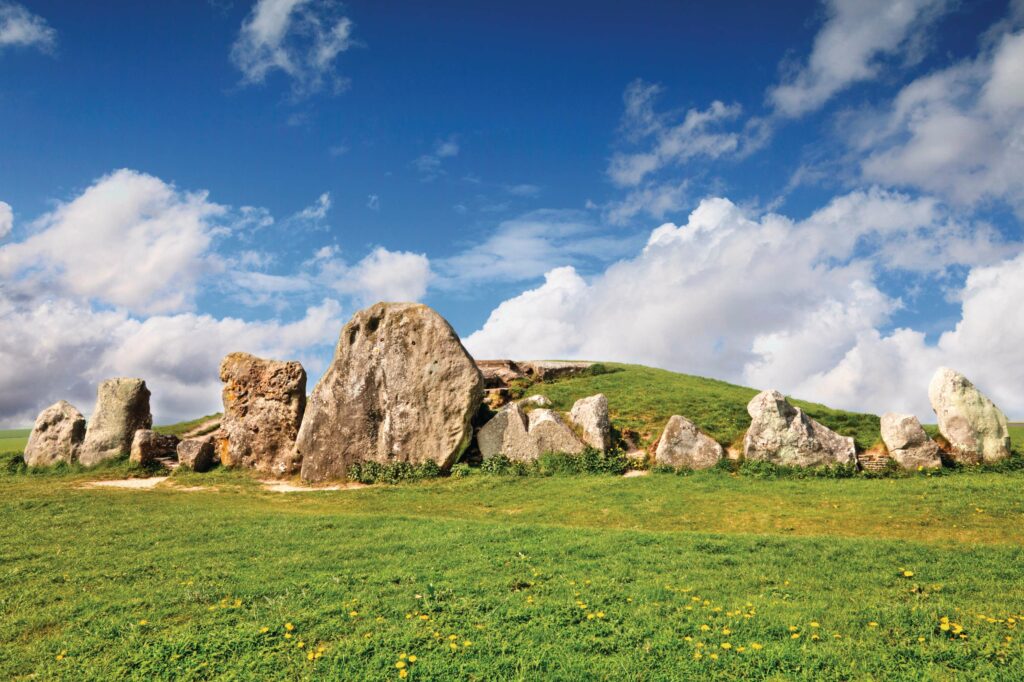
CATCH UP TV
COAST TO COAST FOOD FESTIVAL
BBC IPLAYER
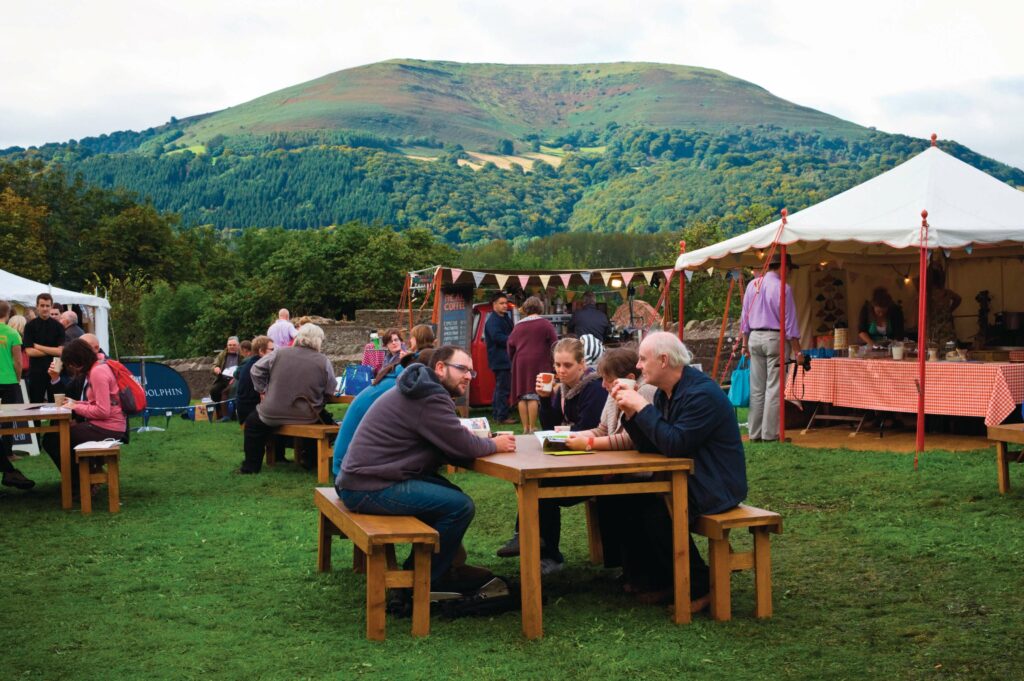
Get snacks ready before watching this! In a five-part series, Colin Murray, Edith Bowman and Countryfile’s Sean Fletcher explore food festivals and markets across the UK, revealing the secrets of food producers on the way.
In episode one, Edith and Colin mark the start of oyster season at Stranraer Oyster Festival and farmer Meinir Howells investigates cheesemaking in Harlech. Sean visits Abergavenny Food Festival in episode two to learn about the best barbecue methods while baker Briony-May Williams discovers which potato makes the perfect chip in North Yorkshire. The whole series is sure to make the mouth water.